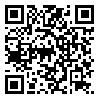1. Haryadi R, Handayani ES, Hayati SA. Psychological well-being of ex-drug addicted counselee in post-rehabilitation education. J Psikol Pendidik. 2020;6(1):1. [
DOI]
2. McNair R, Monaghan M, Montgomery P. Heroin assisted treatment for key health outcomes in people with chronic heroin addictions: a context-focused systematic review. Drug Alcohol Depend. 2023;247:109869. [
DOI]
3. Özer D, Şahin Altun Ö, Kayaoğlu K, Tanrıkulu AB. Evaluation of metacognition, difficulties in emotion regulation and addiction severity levels of individuals diagnosed with substance use disorder. J Subst Use. 2024;1–7. [
DOI]
4. Aboutalebi H, Yazdchi N, Smkhani Akbarinejhad H. Effectiveness of cognitive emotion regulation training on psychological well-being & cognitive emotion regulation of addicted men in Isfahan city. Journal of Community Health. 2022;16(1):23–33. [Persian] [
Article]
5. Bozarth MA. Drug addiction as a psychobiological process. In: Warburton DM; editor. Addiction controversies. CRC Press; 2023.
6. Nikolinakou A, Phua J, Kwon ES. What drives addiction on social media sites? The relationships between psychological well-being states, social media addiction, brand addiction and impulse buying on social media. Comput Human Behav. 2024;153:108086. [
DOI]
7. Zhi R, Derakhshan A. Modelling the interplay between resilience, emotion regulation and psychological well‐being among Chinese English language teachers: the mediating role of self‐efficacy beliefs. Eur J Educ. 2024;59(3):e12643. [
DOI]
8. Ryff CD. Happiness is everything, or is it? explorations on the meaning of psychological well-being. J Pers Soc Psychol. 1989;57(6):1069–81. [
DOI]
9. Dagenais-Desmarais V, Savoie A. What is psychological well-being, really? a grassroots approach from the organizational sciences. J Happiness Stud. 2012;13:659–84. [
DOI]
10. Davis KC, Neilson EC, Kirwan M, Eldridge N, George WH, Stappenbeck CA. Alcohol-involved sexual aggression: Emotion regulation as a mechanism of behavior change. Health Psychol. 2021;40(12):940–50. [
DOI]
11. Miller AE, Racine SE. Emotion regulation difficulties as common and unique predictors of impulsive behaviors in university students. J Am Coll Health. 2022;70(5):1387–95. [
DOI]
12. González-Roz A, Castaño Y, Krotter A, Salazar-Cedillo A, Gervilla E. Emotional dysregulation in relation to substance use and behavioral addictions: Findings from five separate meta-analyses. Int J Clin Health Psychol. 2024;24(3):100502. [
DOI]
13. Chukwuemeka NA, Obioha CW. Emotion regulation strategies on psychological distress and psychological well-being of caregivers of mentally challenged children: moderating role of social support. Psychology, Health & Medicine. 2024;29(1):79–91. [
DOI]
14. Abedin T, Taghiloo S, Ghodsi P, Davabi M. Causal relationship between cognitive emotion regulation and psychological well-being with regard to the mediating role of mindfulness in students. Early Childhood Health And Education. 2024;4(4):87–101. [Persian] [
Article]
15. Kouchi T, Ahmadi V, Mami S, Nademi A. Investigating the relationship between cognitive emotion regulation strategies and psychological well-being of university students in Ilam city, Iran through positive and negative affect. Middle Eastern Journal of Disability Studies. 2022;12:189. [Persian] [
Article]
16. Farhadi I, Barati F. Determining the effectiveness of emotion regulation training on psychological well-being, school adjustment, and cognitive emotion regulation strategies in anxious children. Middle Eastern Journal of Disability Studies. 2022;12:139. [Persian] [
Article]
17. Seyedkhorasani MS, Rafiei-Honar H, Mirzahosseini H. Mediation model of self-control in predicting adolescent psychological well-being based on attachment style and religious orientation. Razi Journal of Medical Sciences. 2023;30(4):160–9. [Persian] [
Article]
18. Abedini M, Akbari B, Sadeghi A, Asadi Majareh S. The effect of self-control on emotional well-being with the mediating role of self-compassion and emotion regulation in cancer patients. Knowledge & Research in Applied Psychology. 2023;24(3):135–46. [Persian] [
DOI]
19. Şimşir Gökalp Z. Examining the relationships between helicopter parenting, self-control, self-efficacy, and multi-screen addiction among Turkish emerging adults. J Genet Psychol. 2023;184(4):229–42. [
DOI]
20. Rahbar Kenarsari Z, Ranjbar Noushari F, Baradaran M. The mediating role of self-control in the relationship between traumatic childhood experiences and craving in patients with methadone maintenance treatment. Etiadpajohi. 2024;17(70):31–54. [
DOI]
21. Wenzel M, Bürgler S, Rowland Z, Hennecke M. Self-control dynamics in daily life: the importance of variability between self-regulatory strategies and strategy differentiation. Eur J Pers. 2023;37(1):33–56. [
DOI]
22. Vohs KD, Baumeister RF, Schmeichel BJ, Twenge JM, Nelson NM, Tice DM. Making choices impairs subsequent self-control: a limited-resource account of decision making, self-regulation, and active initiative. J Pers Soc Psychol. 2008;94(5):883–98. [
DOI]
23. Błachnio A, Przepiorka A. Dysfunction of self-regulation and self-control in facebook addiction. Psychiatr Q. 2016;87(3):493–500. [
DOI]
24. Kline RB. The mediation myth. Basic Appl Soc Psych. 2015;37(4):202–13. [
DOI]
25. Ryff CD, Keyes CLM. The structure of psychological well-being revisited. J Pers Soc Psychol. 1995;69(4):719–27. [
DOI]
26. Bayani AA, Koochekya AM, Bayani A. Reliability and validity of ryff's psychological well-being scales. Iranian Journal of Psychiatry & Clinical Psychology. 2008;14(2):146-51. [Persian] [
Article]
27. Gratz KL, Roemer L. Multidimensional assessment of emotion regulation and dysregulation: development, factor structure, and initial validation of the difficulties in emotion regulation scale. J Psychopathol Behav Assess. 2004;26(1):41–54. [
DOI]
28. Besharat MA. Emotion regulation difficulty scale. Thoughts & Behavior in Clinical Psychology. 2018;12(47):89–92. [Persian] [
Article]
29. Tangney JP, Baumeister RF, Boone AL. High self‐control predicts good adjustment, less pathology, better grades, and interpersonal success. J Pers. 2004;72(2):271–324. [
DOI]
30. Mousavimoghadam SR, Houri S, Omidi A, Zahirikhah N. Evaluation of relationship between intellectual intelligence and self-control, and defense mechanisms in the third year of secondary school girls. Medical Sciences. 2015;25(1):59–64. [Persian] [
Article]
31. Breton MD, Devore MD, Brown DE. A tool for systematically comparing the power of tests for normality. J Stat Comput Simul. 2008;78(7):623–38. [
DOI]
32. McNeish D, Wolf MG. Dynamic fit index cutoffs for confirmatory factor analysis models. Psychol Methods. 2023;28(1):61–88. [
DOI]
33. Gross JJ, John OP. Individual differences in two emotion regulation processes: Implications for affect, relationships, and well-being. J Pers Soc Psychol. 2003;85(2):348–62. [
DOI]
34. Seligman MEP, Rashid T, Parks AC. Positive psychotherapy. Am Psychol. 2006;61(8):774–88. [
DOI]

 ، بهمن اکبری*2
، بهمن اکبری*2 
 ، لیلا مقتدر3
، لیلا مقتدر3 
 ، ایرج شاکری نیا4
، ایرج شاکری نیا4 




